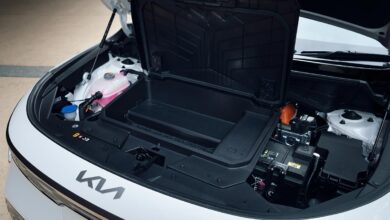The Future of Auto Logistics

Autonomous vehicles are no longer a futuristic concept—they are rapidly becoming a reality, and their impact is poised to revolutionize various industries. Among these, the auto logistics sector is set to undergo significant transformation. From reducing operational costs to enhancing safety and efficiency, autonomous technology has the potential to reshape how vehicles are transported across regions and countries. Here’s a closer look at how autonomous vehicles are influencing the future of auto logistics.
Autonomous Trucks in Vehicle Transport
One of the most promising applications of autonomous technology in auto logistics is the integration of self-driving trucks. Traditional vehicle shipping relies heavily on human drivers, who are limited by working hours, fatigue, and road safety regulations. Autonomous trucks, however, can operate continuously, significantly reducing delivery times.
Autonomous trucks, powered by sophisticated sensors and AI technology, are capable of navigating highways with accuracy, dynamically optimizing routes, and adjusting to changing traffic conditions. This enhances operational efficiency while reducing the likelihood of accidents stemming from human mistakes. For logistics companies, these advancements mean lower costs and greater dependability, ensuring quicker and more reliable vehicle transport. Services like Florida car shipping can further benefit from the improved efficiency and speed offered by these innovations.
Enhanced Efficiency in Logistics Operations
Autonomous technology can streamline various stages of the vehicle shipping process, from loading to delivery. For instance, AI-powered systems can coordinate the placement of vehicles on transport trucks to maximize space utilization. These systems can also automate the scheduling of shipments, ensuring that resources are allocated efficiently and delivery timelines are met.
Additionally, autonomous vehicles can work in tandem with other technologies, such as robotics and IoT (Internet of Things) devices, to create a seamless logistics network. This integration allows for real-time tracking and monitoring of shipments, providing greater transparency for both logistics companies and customers.
Environmental Benefits
The shift towards autonomous vehicles in shipping can also have positive environmental implications. Autonomous trucks are often designed with fuel efficiency in mind, using AI to maintain optimal speeds and reduce unnecessary idling. As electric and hybrid self-driving vehicles become more prevalent, the carbon footprint of auto logistics is expected to decrease further.
Moreover, the ability to optimize routes in real time reduces the distance traveled, cutting down on fuel consumption and emissions. These advancements align with the growing demand for sustainable practices in the logistics industry.
Overcoming Challenges in the Industry
The auto logistics sector faces several challenges, including a shortage of drivers, rising fuel costs, and increasing demand for vehicle transportation. Autonomous technology offers solutions to these issues. By reducing dependence on human drivers, companies can address labor shortages while lowering operational costs. The technology also ensures consistency in service quality, as autonomous vehicles are not subject to the variability of human performance.
Impact on Shipping Costs
Autonomous vehicles are likely to bring down shipping costs over time. Although the upfront cost of self-driving technology can be significant, it offers considerable long-term savings in fuel, labor, and maintenance expenses. For consumers, this could mean more affordable vehicle transport services, making it easier to ship cars across regions or internationally.
Challenges and Ethical Considerations
Despite its potential, the adoption of autonomous technology in auto logistics is not without challenges. Regulatory frameworks governing autonomous vehicles are still evolving, and gaining public trust in the technology will take time. Ethical questions, such as how AI should handle accident scenarios, also need to be addressed before widespread implementation can occur.
Additionally, the transition to autonomous vehicles may disrupt the job market, particularly for drivers. Logistics companies and policymakers will need to find ways to retrain workers and create new opportunities within the industry.
Looking Ahead: The Role of Fully Autonomous Cars
In the long term, fully autonomous passenger cars could also play a role in auto logistics. Imagine a future where vehicles drive themselves to shipping depots or even directly to their destination, eliminating the need for traditional transport methods altogether. This could significantly streamline the logistics process, especially for short-distance deliveries.
For international shipping, autonomous ships and drones could complement self-driving vehicles, creating an integrated, fully automated logistics network that spans air, land, and sea.
Conclusion
Autonomous vehicles are set to transform the auto logistics industry, offering enhanced efficiency, cost savings, and sustainability. From self-driving trucks that optimize vehicle transport to fully autonomous cars that eliminate traditional shipping methods, the possibilities are vast. While challenges such as regulation and public trust remain, the potential benefits far outweigh the hurdles. As technology continues to advance, autonomous vehicles will play a pivotal role in shaping the future of how cars are shipped, making the process faster, safer, and more environmentally friendly.
Keep an eye for more latest news & updates on Usa Tech Magazine!





